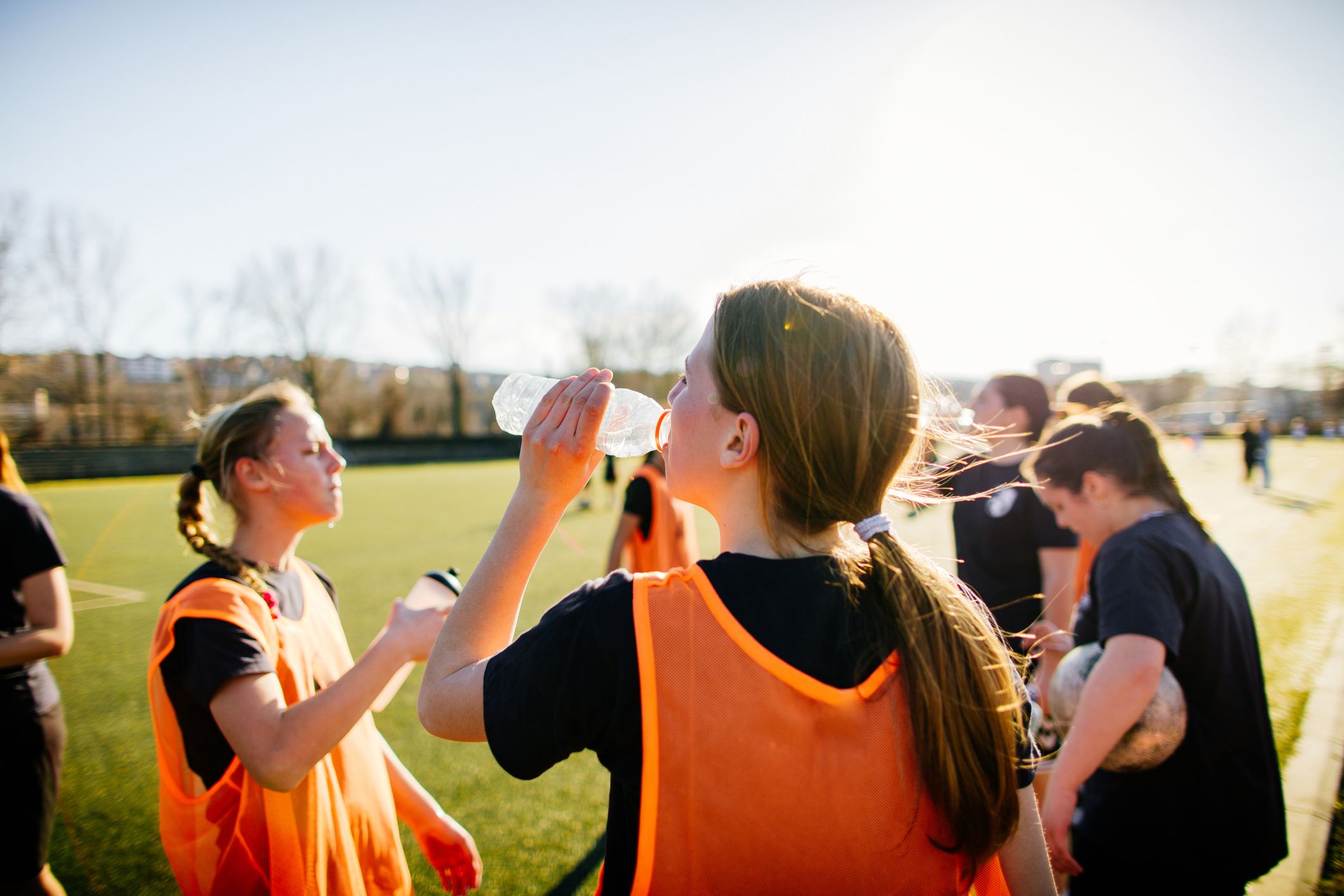By Jill Grech for Women's Health Foundation
"Drink more water!" That is my declaration to nearly every complaint filed by my children, much to their dismay.
"I have a headache."
"Drink more water!"
"I'm hungry."
"You just ate. Drink more water!"
"It hurts on the potty."
"You're constipated. Drink more water!"
Don't tell them I told you. But for real, they—and all kids—need to drink more water. A study by Harvard T.H. Chan School of Public Health reported that more than half of all children and adolescents are dehydrated. On average, 9- to 13-year-old girls should have at least 7 cups of water each day.
Think about your daughters or students. Are they getting close to that amount?
All of us know—and quite frankly, our kids do, too—that water is ESSENTIAL for our bodies to properly function. It impacts everything from cognitive ability to motor skills to blood sugar levels. The Women's Health Foundation focuses on bladder function, which is also affected by hydration.
What color is your pee?
Another question my kids love. In Missy Lavender's and Jeni Ihm's book, Below Your Belt: How to Be Queen of Your Pelvic Region, a chart mapping the various shades of urine helps girls gauge how well they are hydrating. That color is important because it indicates how well your elimination system is working. The lighter, the better.
Many kids (and adults) think that limiting fluid intake will help them use the bathroom less frequently. What that really does is force your body to conserve fluids. Not good a good habit. In Missy Lavender's other book, You Go Girl: But Only When You Want To, she explains:
"Just as concentrated lemonade makes your mouth pucker, concentrated urine can make your bladder 'pucker' or contract." Contraction creates that "gotta go" feeling, and then when you go, there's not much there. And, like undissolved lemonade, your bladder is left with gritty crystals of waste. Conversely, staying hydrated with small amounts of water throughout the day, equaling about 6 to 8 glasses, is the perfect way to keep the concentration of wastes diluted, and your bladder relaxed and happy."
Your bladder doesn't like anything left behind. Chronic incomplete elimination can lead to other issues like incontinence, urinary tract infections, and poor kidney function. Hydrating regularly flushes everything through your system properly and helps avoid these problems.
Why won't these kids drink water?
Are you hydrating properly? Coffee and wine don't count! Set an example of drinking water regularly in front of your kids. They really are paying attention. Have water with meals, take water on the go, keep water on your nightstand.
Your habits aren't all at fault, though. There are several reasons our children end up dehydrated.
Taste: Your child is not alone if they complain about the taste of water. Lots of kids just don't like it. Add a slice of lemon, lime, cucumber or strawberry to give it some flavor. Sparkling flavored waters also count.
School: Many children go the entire school day without going to the bathroom. That is far too long for our bodies! There may be rules about when they can go or they may be embarrassed to ask. Encourage your child to drink during the day and make sure she gets adequate potty break opportunities.
Options: Given the chance, your kids and mine will choose juice or soda all day long. Limit their options and make those "sometimes" foods, like desserts.
Convenience: Especially at school, drinking water may not be as readily available as you'd think. Send them to school with water bottles (again, understand the school rules). When we have a day on the go, my kids love their hydration backpacks. They chug that water in no time just because it's different and fun.
Just like anything, it works best to build healthy habits when our kids are young. Luckily, hydration is a topic that they are likely to hear about over and over. Eventually, they'll figure out that they, in fact, are not camels and that their bodies require frequent watering.
Jill Grech is the former Women's Health Foundation Marketing and Community Manager and currently Web strategic marketing manager for Loyola University and digital marketing consultant. Her three kids have learned to never complain of their many varied ailments without physical proof that a full glass of water has already been consumed.


